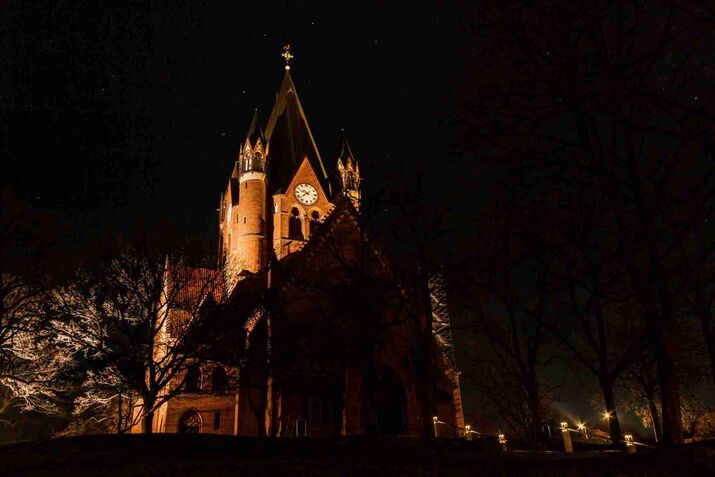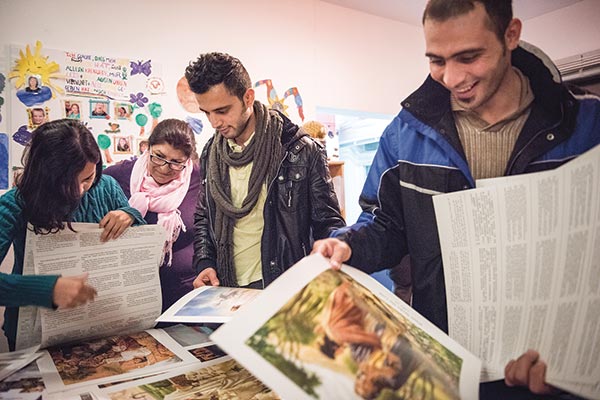Christianity in the Marketplace: Living Faith Beyond Religion
In the Middle East, faith is leaving the church walls and entering everyday life. From shopkeepers to students, ordinary believers are bringing Jesus into markets, cafes, and workplaces — transforming their communities through compassion, courage, and simple presence.

Faith Where Life Happens
Across the Middle East, faith is not confined to cathedrals or pulpits. It lives in open-air markets, noisy cafes, refugee camps, and street corners where everyday life unfolds.
For many believers, the marketplace has become the new mission field. In places where institutional religion is politicized or restricted, ordinary interactions — a conversation over tea, a kind word at a shop counter — often become the frontlines of ministry. This is what Nadim Costa, president of NEO US, calls “ministry made livable.”
Faith that leaves the building and walks into the world.
When Religion Becomes Life
Nadim often says that Christianity in the Middle East cannot survive as a mere religion. “If all it takes is showing up in church, paying tithes, and following rules,” he asks, “why should I die for that?”
In Lebanon and across the region, religion is not just personal belief — it’s political identity. Your sect determines your community, your opportunities, sometimes even your safety.
But when faith is lived as a relationship rather than a ritual, everything shifts. This kind of Christianity — personal, relational, transformative — becomes a quiet revolution. It’s faith not limited to Sunday, but breathed out in every act of love, honesty, and compassion throughout the week.
The Marketplace Mission
The Middle Eastern souk — the marketplace — is the heartbeat of community life. Here, people buy and sell, laugh and argue, share news and stories. It’s where reputations are made and relationships are built. For followers of Jesus, the souk is also sacred ground. It’s where faith meets real life.
“I want to see ministry in the marketplace,” Nadim says. “Make ministry livable, not theoretical.” And believers across the region are doing just that. A grocer in Egypt encountered the love of Christ when a disabled man entered his shop and said, “Jesus loves you.” That brief encounter became a turning point — the start of a new faith and a quiet movement of disciple-makers in his neighborhood.
In Lebanon, young believers gather in cafes to study Scripture over coffee. In Iraq, shopkeepers and small business owners rebuild communities devastated by war, offering both work and prayer in the same breath. Faith has moved off the stage and into the street — where people actually live.
Small Gestures, Lasting Impact
Sometimes the most powerful witness comes in the smallest moments.
Nadim tells of a cashier in Birmingham, Alabama, who began to cry when a stranger said, “God bless you.” In five years of scanning groceries, no one had ever spoken those words to her.
The same happens every day across the Middle East. A whispered “Can I pray for you?” at a market stall. A smile and a blessing at a checkpoint. A gentle reminder that hope is still alive.
What seems ordinary to one person can be extraordinary to another who has never been seen or valued that way. Faith doesn’t always need a microphone — it often begins with simple presence.
Faith in the Ordinary
Marketplace ministry is not a new concept — it’s as old as the gospel itself. Jesus taught beside wells, at dinner tables, and in fishing boats. Paul preached in the agora — the public square of Athens — where philosophy and trade collided.
The early church grew not through institutions, but through relationships in daily life. And that same pattern is reemerging in the modern Middle East.
When Christians live with integrity, work with compassion, and serve others in love, the gospel is proclaimed without words. As Nadim puts it: “We don’t need to preach religion. We need to live Jesus in front of people.”
Faith That Dwells
In the incarnation, God entered the marketplace of humanity — He became one of us. Marketplace ministry follows the same pattern.
It’s faith that dwells among people, not apart from them.
In a region where Christians are often a small minority, presence becomes proclamation. When believers face the same challenges — inflation, unemployment, political uncertainty — yet live with hope, their lives become living testimonies.
This is what NEO’s teams model daily: not preaching from platforms, but embodying faith through service, compassion, and everyday integrity.
Faith That Works
Christianity in the Middle East is thriving in unexpected places — not in monuments of stone, but in moments of grace.
From Cairo’s crowded shops to Beirut’s coffee tables to Mosul’s rebuilding streets, faith is showing up where life happens. For the global Church, the lesson is simple and urgent: faith must be lived, not just professed.
The most powerful witness isn’t a sermon — it’s a life marked by compassion, integrity, and courage. When we bring Jesus into the marketplace — into the ordinary and the overlooked — the extraordinary begins.
“Ministry in the marketplace isn’t a strategy,” Nadim says. “It’s just following Jesus into the places He already is.”
In the heart of daily life, faith is finding its voice — quietly, steadily, and unstoppable.

.webp)

